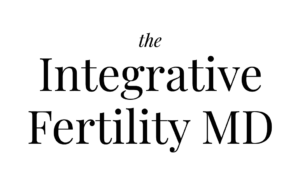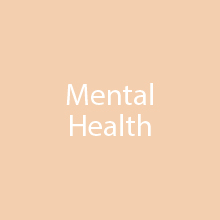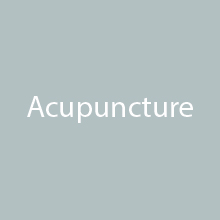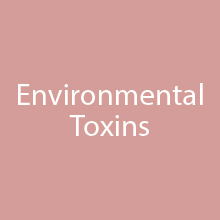Nutrition
Research shows that eating a healthy diet prior to conception among both women and men of reproductive age have a beneficial effect on fertility. It is recommended to eat a balanced diet of plant protein from vegetable sources, whole grains, monounsaturated or polyunsaturated oils, fruits, and fish.
Here’s some helpful links on the topic:
https://www.health.harvard.edu/diseases-and-conditions/follow-fertility-diet
https://www.healthline.com/nutrition/17-fertility-tips-to-get-pregnant
https://www.eatright.org/health/pregnancy/fertility-and-reproduction/fertility-foods
Certain stores that carry a large assortment of organic foods and natural foods are more likely to carry healthy, pesticide-free, toxin-free and chemical-free foods. Please note that because a food is purchased here it doesn’t guarantee it’s healthy or chemical-free.
*Follow me on instagram for tips on healthy grocery shopping and label reading!
When cooking, avoid Nonstick and aluminum pans. Use Glass, Stainless Steel, and cast iron to avoid toxins like Perflorinated chemicals (PFOA, PFOS). Some of my favorite easily accessible brands are listed below. Here are some safe brands:
www.all-clad.com (all clad does sell non stick pans as well, be sure to look for stainless steel)
BPA from storage containers can leak into your food. Avoid plastic when it comes to storing food and opt for glass. Pyrex has a lot of tupperware set
Meditation, MBSR & Yoga
Meditation, mindfulness-based stress reduction (MBSR) and yoga have both been shown to help reduce stress levels. Stress has been linked to infertility. Developing a meditation, MBSR, or yoga practice can help improve overall quality of life and help boost fertility. Benefits of mediation and yoga include:
- Reduced stress, anxiety, and depression
- Improves focus
- Improves sleep
- Can help fight addiction
- Increases compassion for yourself and others
- Lowers blood pressure
- Can decrease pain
Meditations can be slow relaxed breathing with your eyes closed for 5-20 minutes, or it can be a guided format.
Here is a meditation to try:
https://www.youtube.com/watch?v=lQyyjqCCTmo
Here’s a link to the audio files for my personal mindfulness instructor, listen along in the morning or before bed to calm your mental and physical body.
www.bethsummerl.com/audio-files/
Mindfulness Based Stress Reduction (MBSR) is present moment awareness without judgement on purpose.
Here is a free resource page for MBSR:
https://palousemindfulness.com/=
Circle + Bloom | Meditation and visualization audio programs designed for patients trying to conceive and patients undergoing fertility treatments. 20% off with code Shala20
Below is a free fertility relaxation from Circle+Bloom
https://www.youtube.com/watch?v=yAu3hgUu1sk
Belleruth Naparstek is one of the foremost experts in the field of guided imagery find her guided imagery for fertility, anxiety and sleep amongst several other helpful topics. Her audio files are available on iTunes and Spotify:
https://www.healthjourneys.com/author-bio-belleruth-naparstek
Here is a gentle yoga class for fertility:
https://www.youtube.com/watch?v=oFHYSf0v6Sc
Be sure to practice on a a non- toxic yoga mat, made from biodegradable natural tree rubber, manufactured with zero waste and with no harmful plasticizers. These mats are free of toxic chemicals, dyes and phthalates.
Here are my top Apps to try:
Meditation: Calm, Headspace
Fertility-focused apps:
Sexual Wellness Apps
Acupuncture
Acupuncture helps to keep the normal flow of energy unblocked, which can increase fertility by reducing stress, increasing blood flow to the reproductive organs and balancing the endocrine system, according to several studies and medical research. It can be used to treat a variety of medical conditions that can impact fertility.
Learn more about acupuncture for fertility:
Mental Health
Cognitive behavioral therapy, couples therapy, and support groups are all forms of mental health support for infertility. Seeking out the help of a counselor can help you cope more effectively with the stressful nature of fertility treatment and continuing to have healthy communication with your partner and family during the process.
To find a therapist in your area, visit www.psychologytoday.com and click “Find a Therapist”
Environmental Toxins
Environmental toxins are present in air, water, soil, food, and consumer products. Toxins that we are exposed to can affect fertility in both women and men. Environmental toxins have been linked to infertility.
According to the National Institute of Health, the worst fertility disruptors are organochlorine compounds (chlorinated pesticides, polychlorinated biphenyls, and dioxins), bisphenol A (BPA), and organophosphate pesticides and herbicides. However, many other chemicals, metals, and air pollutants seriously damage fertility.
For tips on removing environmental toxins from your home, click here: https://www.health.com/home/9-ways-to-detox-your-home
For clean beauty products, try these links:
www.beautycounter.com/shalasalem
To check beauty product safety:
For safe feminine care products:
A skin- safe polymer device for women experiencing painful intercourse
*for a discount, use code DRSHALA7
Shop for fertility friendly lubricant, ovulation kits, pregnancy tests and prenatal vitamins.
Natalist” data-wplink-url-error=”true”>www.natalist.com
For toxin-free cleaning products:
Non toxic home cleaner as powerful as bleach, without all the chemicals
Safe bedding:
Naturepedic: certified organic mattresses and pillows
Community Support
Experiencing infertility can be physically, emotionally and financially challenging. Without proper support it can impact your well-being and your relationships. Finding support to talk through your challenges and learn best practices to overcome difficult times can be invaluable.
Here is a resource page to find a support group near you:
https://resolve.org/support/find-a-support-group/
Check out this app meet, chat and learn from other women. The app has groups designed around fertility, pregnancy and motherhood.
Conditions
About 1 in 8 couples experience challenges with conceiving or maintaining a pregnancy. There are many conditions that can impact infertility. Here are resources from the American Society of Reproductive Medicine regarding health conditions that are linked to fertility
PCOS
https://www.reproductivefacts.org/topics/topics-index/polycystic-ovary-syndrome-pcos/
If you have been diagnosed with PCOS and would like to meet with a fertility specialist trained to help you, contact us today.
Endometriosis
https://www.reproductivefacts.org/topics/topics-index/endometriosis/
If you have been diagnosed with endometriosis and would like to meet with a fertility specialist trained to help you, contact us today.
Unexplained infertility
https://www.reproductivefacts.org/topics/topics-index/unexplained-infertility/
If you have been diagnosed with unexplained infertility and would like to meet with a fertility specialist trained to help you, contact us today.
Poor ovarian reserve
https://www.reproductivefacts.org/topics/topics-index/ovarian-reserve/
If you have been diagnosed with poor ovarian reserve and would like to meet with a fertility specialist trained to help you, contact us today.
Recurrent pregnancy loss
If you have experienced recurrent pregnancy loss and would like to meet with a fertility specialist trained to help you, contact us today.
Male factor infertility
https://www.reproductivefacts.org/topics/topics-index/male-infertility/
If you or your partner have been diagnosed with male infertility and would like to meet with a fertility specialist trained to help you, contact us today.






